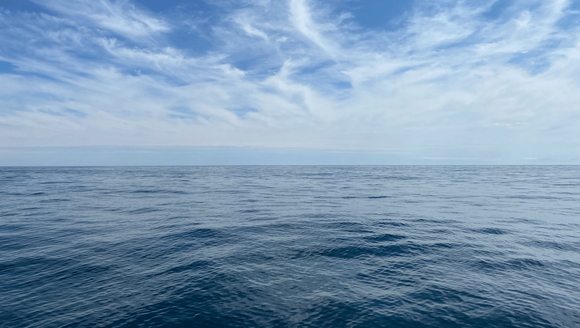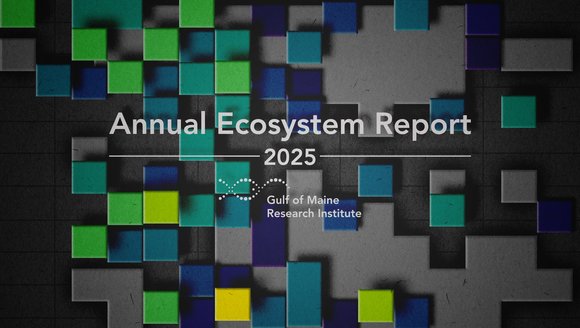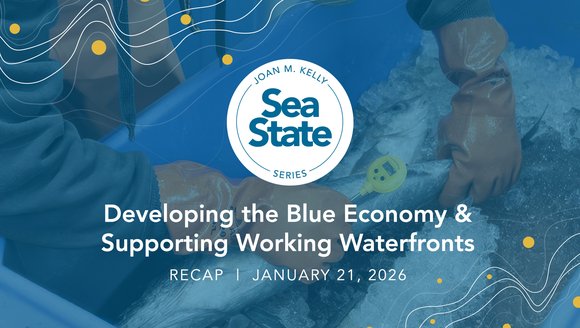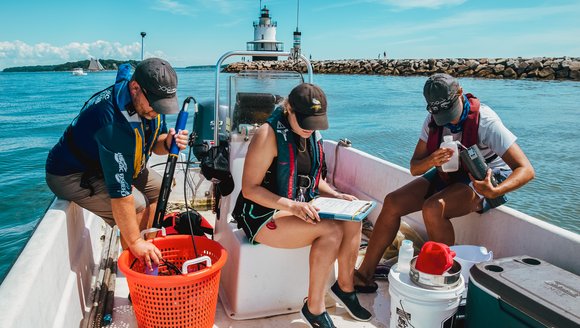Marine and Coastal Phenology: Temperature, Phytoplankton, and Fish
What can we learn about the timing of ocean events?
Changes in phenology, or the seasonal timing of recurring events, are familiar to many terrestrial observers as shifts in leaf-out or blooming dates, for example. Similar types of phenology changes are occurring in the ocean, and are much less studied. In this project, we document and visualize how ocean phenology is changing through shifts in the timing of ocean warming and cooling, phytoplankton blooms, and fish migrations.
Project Goals:
- Develop indices of ocean phenology and evaluate their patterns of variability in the North Atlantic and Pacific basins.
- Evaluate relationships between basin-scale phenology patterns and phenological shifts in life history events of anadromous fish species.
- Develop generalizable algorithms for extracting and visualizing the phenology indices.
Strong seasonal temperature cycles characterize the North Atlantic ocean, which leads to seasonality in other ecosystem components, such as phytoplankton and zooplankton blooms, and the migration and spawning cycles of many species. Studies across the globe are finding that shifting phenology — or the seasonal timing of events — is a key signal of climate change impacts. This study will investigate how ocean phenology is shifting in the North Atlantic and elucidate linkages between changes in the timing of ocean warming and cooling, phytoplankton blooms, and anadromous fish migrations.
Past studies (Thomas et al. 2017), have demonstrated that ocean waters on the Northeast Shelf are warming earlier in the spring and cooling later in the fall. This study will evaluate whether this pattern extends across the North Atlantic and identify regional- and basin-scale influences associated with shifts in the timing of the temperature cycle. In addition, it will investigate whether phytoplankton bloom timing and anadromous fish migration timing (i.e., Atlantic salmon, American shad, river herring) are changing, as well as how each of these may be influenced by ocean temperature phenology. These results will extend our understanding of climate change impacts on marine ecosystems and of how basin-scale changes influence fish populations here in the Gulf of Maine.
Another important element of the project will develop tools to visualize phenology indicators from local, regional, and basin-scale ocean data. These tools will highlight phenological events in time series data as well as support geospatial visualizations so that phenology indicators can be mapped. This element of the project will enable a broad array of interested users to interact with ocean phenology data.
Internal Team
-
![the staff photo for Kathy Mills]()
-
![This is the staff photo for lisa kerr]()
Lisa Kerr, Ph.D.
Associate Professor, UMaine School of Marine Sciences
-
![]()
External Collaborators
- Nick Record, Ph.D.
Senior Research Scientist
Bigelow Laboratory for Ocean Sciences - Andrew Thomas, Ph.D.
Professor
University of Maine - Ed Armstrong
Senior Data Scientist
NASA Jet Propulsion Laboratory
Project Sponsor
Results or products mentioned on this page are a result of research funded by the National Aeronautics and Space Administration under award NNX16AG59G.
-
Atlantic Meridional Overturning Circulation (AMOC) 101
This 101 explainer breaks down what the AMOC is, how it influences climate, what scientists are observing now, and what a changing AMOC could mean …
Perspectives
-
2025 Casco Bay Ecosystem Monitoring Report
Dive into the latest findings from a decade of nearshore monitoring in one of the world's fastest-warming marine ecosystems.
Reports
-
Sea State Recap: Developing the Blue Economy and Supporting Working Waterfronts
At our latest Sea State Seminar, we turned our attention to the people and places that keep Maine’s coastal economies alive. Framed by the theme …
Perspectives
-
2025 Research Progress Update
Each year, to keep you updated on our research team's progress, we develop an update showcasing some of our lab's achievements. More broadly, this update …
Reports




